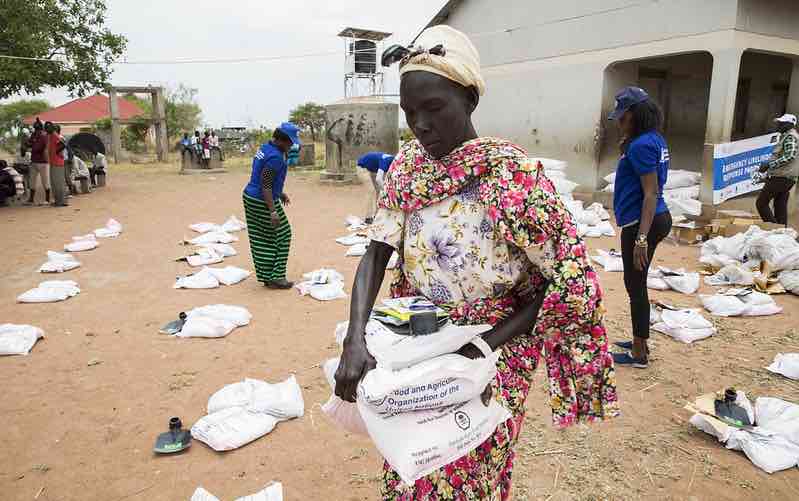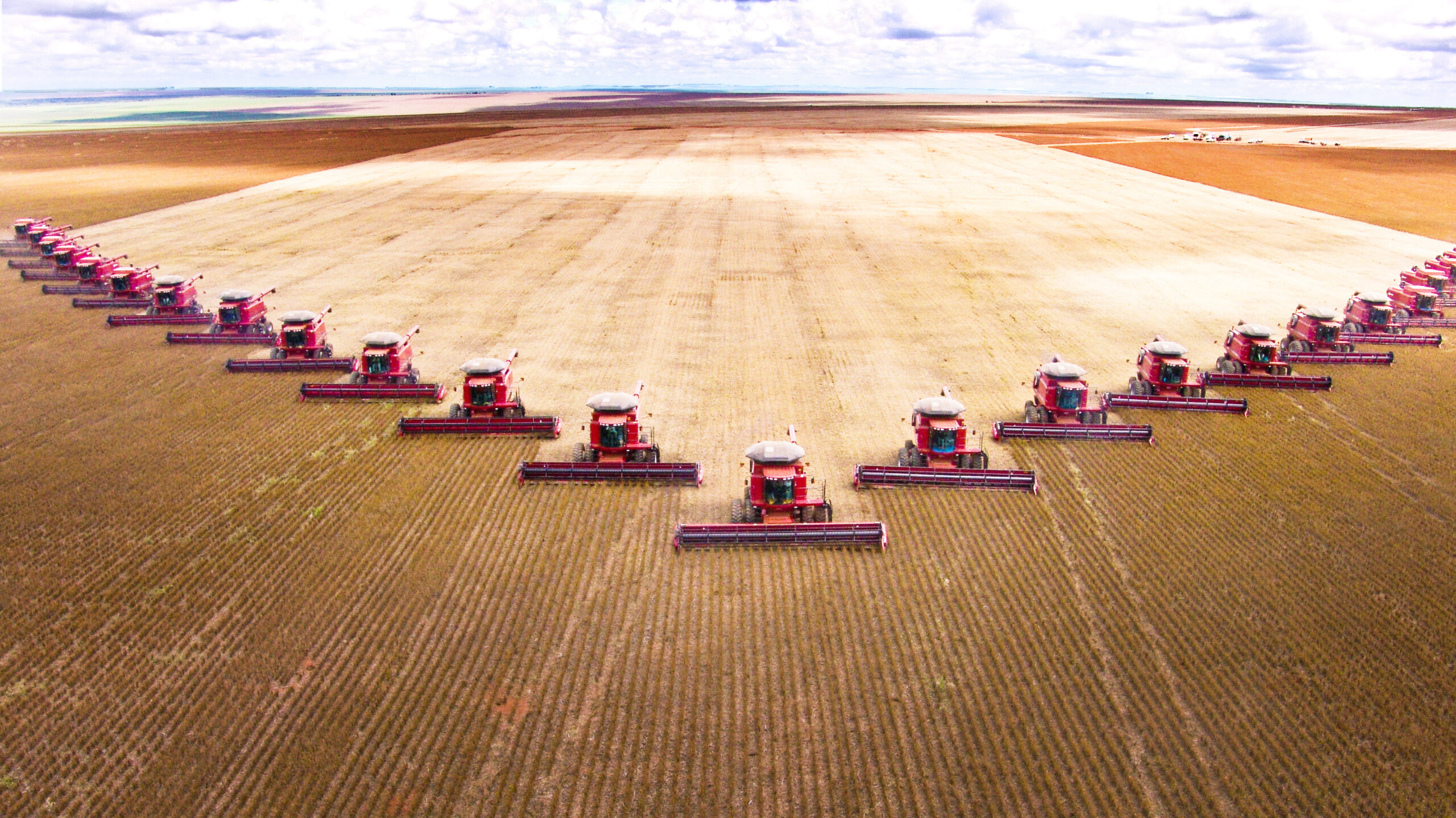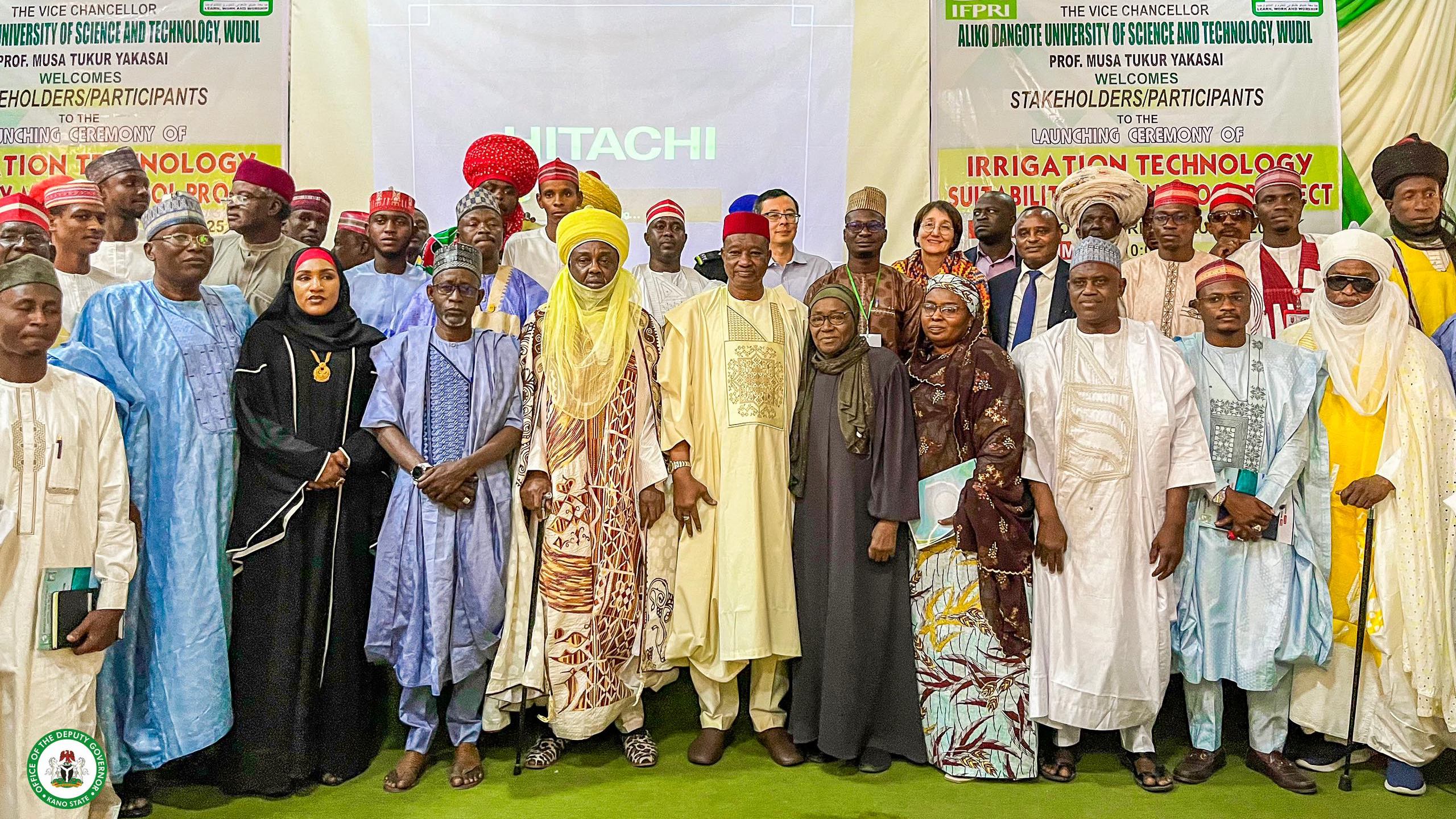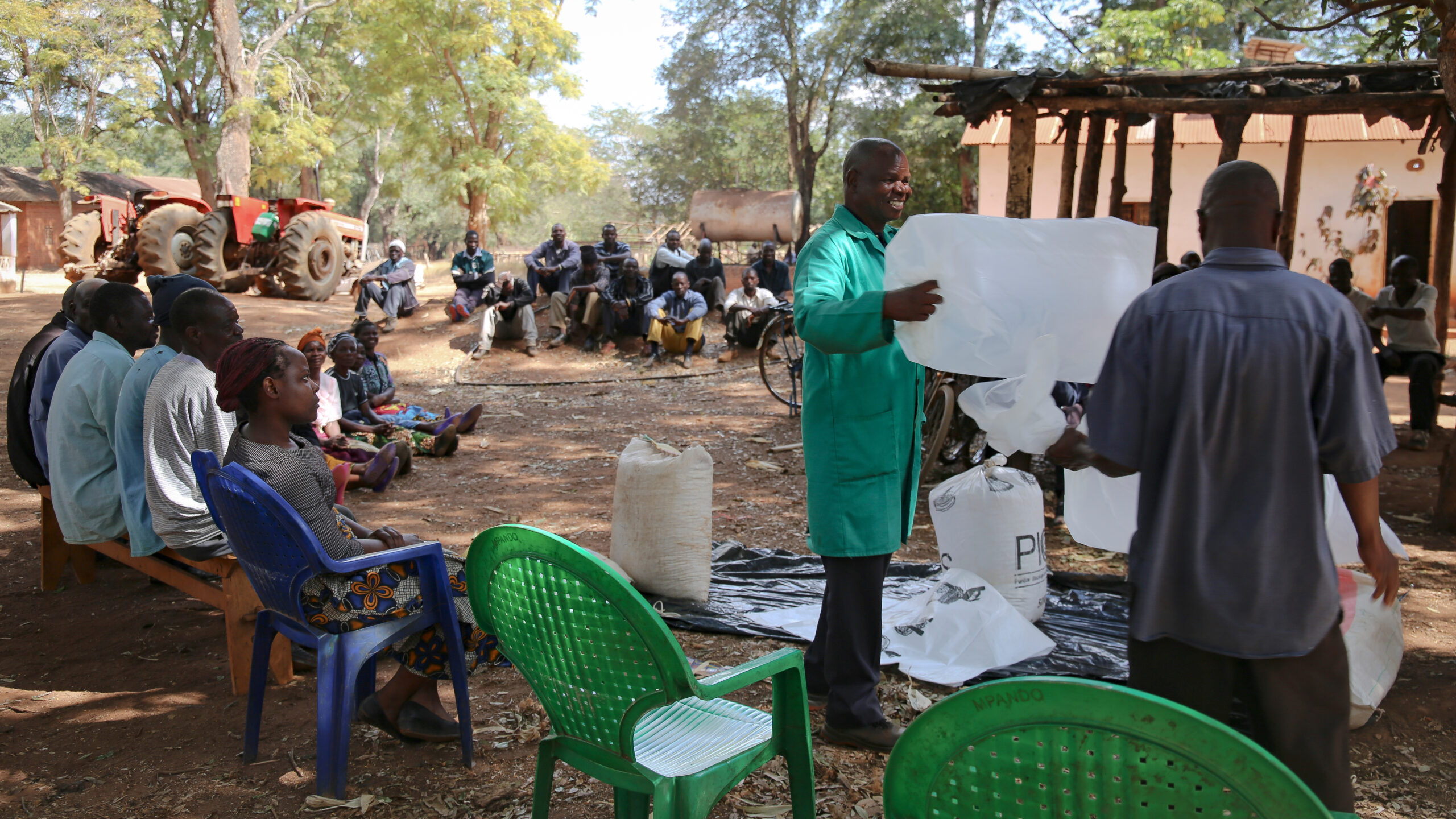The COVID-19 pandemic has hit the global economy hard, and in many places other factors—such as the locust invasion in East Africa and falling export commodity prices—are compounding its effects. FAO Chief Economist Maximo Torero observes that no modern economy has experienced anything like the combination of the Great Lockdown and the worst recession since the Great Depression, and that these could trigger a global food crisis—with Africa south of the Sahara especially vulnerable. He lays out a series of policy prescriptions that can help keep millions from starvation and fortify food systems for a post-pandemic world.—Johan Swinnen, series co-editor and IFPRI Director General.
With a devastating one-two punch, a supply shock followed by a demand shock, the COVID-19 pandemic has knocked out the world economy. The first blow was the Great Lockdown; the second, the worst recession since the Great Depression. No modern economy has experienced anything like this. As the spread of the novel coronavirus debilitates people’s ability to harvest and buy and sell food, food systems are under threat as never before.
It’s thanks to producers and workers across the food supply chain that food continues to move from where it is produced to where it is needed, logistical delays notwithstanding. Countries have shown restraints, too, as most of them didn’t jump to restrict food exports. In fact, the number of pandemic-related export restrictions has decreased from 18 to seven, representing less than 1% of the share of global food trade.
But the lockdowns have triggered a steep recession. The World Bank projects the global economy to shrink 5.2% this year. The IMF’s latest projection is –4.9%. The OECD is forecasting a 7.6% contraction, given a second wave of infections before the year’s end, and a very slow recovery of 2.8% in 2021. In both rich and poor countries public debt is soaring and is expected to exceed the post-World War II peak.
A collapse in demand for food due to lack of income and disruptions to local food markets indicate important vulnerabilities, as shown in Figure 1, and could prompt a global food crisis. Hunger and malnutrition were significant global problems even before the pandemic. More than 2 billion people didn’t have regular access to safe, nutritious and sufficient food last year. Some 704 million of them went to sleep on an empty stomach; this included 135 million people who were on the edge of starvation.
At FAO, we estimate that a 5%-10% drop in GDP growth would mean an additional 38.2-80.3 million people in poor countries that rely on food imports falling into the hunger trap. At a global scale, this means the number of hungry people would jump by between 74 million and 120 million. The effects of COVID-19 are even more pronounced in Africa south of the Sahara and Small Island Developing States (SIDS). The virus shuttered tourism, leaving SIDS like Fiji, the Maldives, and Mauritius scrambling for economic survival. The World Bank expects to see a sharp 20% drop in global remittances.
Africa is bracing for the worst. The epic oil price crash has led to a global financial bust. For the continent’s exporters, such as Nigeria, Chad, Libya, and Algeria, it has wiped out their principal source of revenue. A catastrophic locust outbreak in East Africa was—pre-pandemic—projected to force 25 million people in Ethiopia, Kenya, Somalia, Uganda, and Sudan to go hungry. A swarm covering one square kilometer contains 80 million insects and consumes more food in 24 hours than 35,000 people. Africa south of the Sahara faces its first recession in 25 years and is especially vulnerable to the impact of COVID-19.
Food systems, which directly employ over 1 billion people, are about to lose more then 451 million jobs or 35% of formal employment, according to an unpublished FAO/IFPRI estimate. The jobs most at risk are in food processing, services, and distribution, disproportionately affecting female workers.
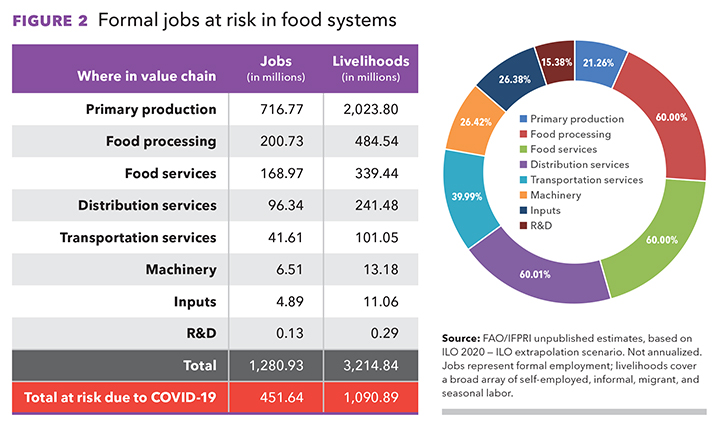
Countries must respond by deploying the full power of fiscal and monetary policies. I cannot overemphasize the importance of expanding social protection for vulnerable people who can’t afford basic nutrition. Governments should use cash transfers and mobilize food banks. Parallel to this, they should increase food production, reduce food losses, and create employment. Public works projects throughout agri-food systems can provide people with livelihoods. It is important that the rural poor, especially women among them, benefit from this policy combination.
Food supply chains must keep moving. This means protecting the health of all supply chain workers. Economic recovery cannot come at the expense of health, as seen in meat processing plants in the United States and Germany, and wholesale markets in Mexico, Peru, and Brazil. Health is a precondition for economic recovery; and food is a precondition for health. Similarly, there is a need to increase testing capacity at ports to allow vessel crews to disembark without the need to self-quarantine and minimize disruption to maritime transportation.
It is equally critical that smallholder farmers and micro-, small- and medium-sized enterprises (MSMEs) keep operating. In poorer countries, they play a crucial role supplying food to poor consumers. Supply chain disruptions have hit MSMEs hard, and they need access to finance to stay afloat during the drawn-out period between recession and an upturn in a U-shaped recovery. Central banks or international financial institutions should provide warranties, so that banks can help MSMEs with highly concessional emergency loans, business continuity grants, moratoriums on loan repayments, as well as short-term stimulus packages that support sales, cash flow, and working capital. Banks should set lending targets for smallholder producers and engage in inclusive agricultural investment.
If small enterprises in agricultural value chains shut down, the problem of food access and food availability could intersect, creating a nightmare scenario the world is ill-equipped to handle.
Finally, countries have to accelerate intra-regional trade. Exports can mitigate losses in revenues. And imports can improve food availability and stabilize local food prices. In both exporting and importing countries, access to various markets can boost producers’ productivity and income.
For Africa, trade within the continent is especially important, because the region can create demand to compensate the weak demand from Europe. African countries should develop food safety standards across the value chain and ramp up access to infrastructure. The first is vital, as it would reduce non-tariff trade barriers and prevent governments from imposing blanket import restrictions.
COVID-19 has amplified the voices of anti-globalization. It is setting off calls for food self-sufficiency as well. It’s understandable, but pursuing food self-sufficiency is the worst move countries can make right now. No country has all the natural resources to produce the food it needs in the variety it needs. Facilitating global trade, not promoting self-sufficiency, is key to boosting food security. The pandemic has also given us an opportunity to make investments that will lay the foundation to reset food systems and whose returns will accrue far into the future.
The world is in a grueling 12-round fight against the coronavirus. In every round, there’s a risk of another lockdown. But the above policy recommendations will prevent millions of people from facing outright starvation. They will make it easier for countries to bounce back from the recession and go the distance.
Maximo Torero is the Chief Economist and Assistant Director General for Economic and Social Development at the U.N. Food and Agriculture Organization in Rome.




